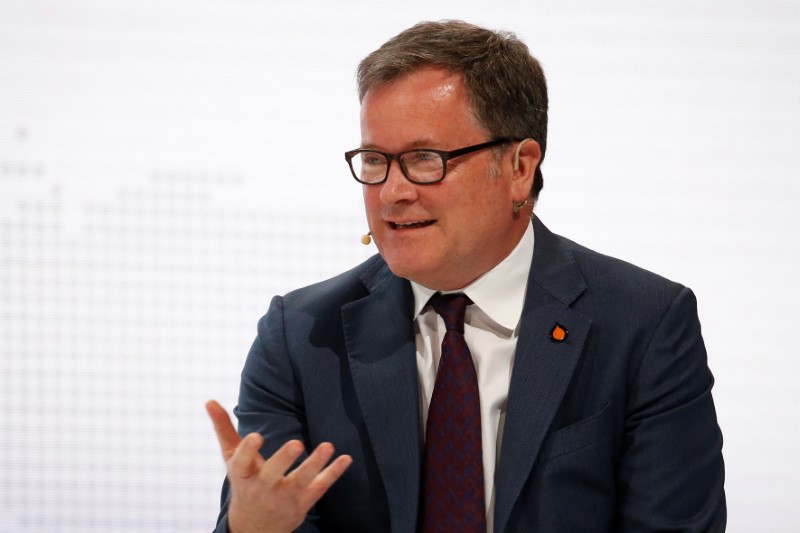LONDON (Reuters) - Global energy trader Vitol said on Friday its 2019 revenues were $225 billion (184 billion pounds) and its traded oil and refined products volumes rose by 8%.
Chief Executive Russell Hardy said last year's performance was "solid", as the company's traded oil volume hit 8 million barrels per day (bpd), up from 7.4 million bpd in 2018.
"Across the barrel, margins were favoured by a relative tightness, enabling us to optimise performance ... Most products benefited from these conditions, with crude oil volumes increasing 10%, gasoil 20% and gasoline 13%," Hardy said in a statement.
"As anticipated, IMO impacted high sulphur fuel oil demand and our fuel oil volumes consequently fell 11%."
At the beginning of January, the global shipping industry had to start using fuel with a maximum sulphur content of 0.5% according to new rules by the International Maritime Organisation (IMO) in order to cut pollution.
Vitol, the world's largest oil trader, and its competitors have increasingly been looking at how to adjust their business models, heavily reliant on fossil fuels, to the energy transition.
Hardy said Vitol expects "non-oil to comprise an increasing share of our revenues, albeit from a relatively low base". Its traded liquefied natural gas volumes jumped 35% to 10.5 million tonnes as part of this shift as natural gas burns cleaner than other fossil fuels like coal or fuel oil.
"(We) anticipate being invested in over a gigawatt of renewable power capacity in the next 36 months," he said.
In Ghana, Vitol's joint upstream gas project with Italian major Eni and Ghana's GNPC allowed the country to cut carbon emissions by over 1.6 million tonnes last year as its power stations replaced liquid fuels with natural gas.

Last year, was also marked by further downstream consolidation as Abu Dhabi's ADNOC took a 10% stake in storage arm VTTI.